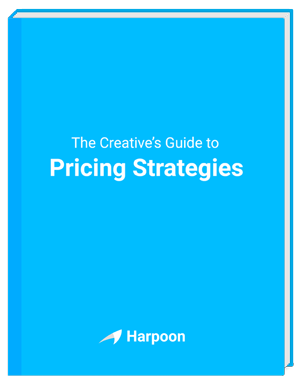
When I started out as a freelancer 5 years ago I went about it all wrong. I didn't have a portfolio full of sites from Fortune 500 companies that everybody recognized, in fact, I didn't have anything to put in my portfolio. I also didn't have a target market other than "whoever I can find that needs a website."
Because I didn't have a portfolio to show off, I simply grabbed a stock photo of a small business owner and made the headline "Websites for Small to Medium Businesses." I put a few lines of copy about what types of skills that I had (or could learn pretty quickly if needed), and put it on the Internet.
And there it sat.
Of course, without a marketing plan how could I expect anybody to find me. Even if you searched for "Websites for small to medium businesses," my two day old website was probably on the very last page of Google, if there at all. So I set out to redefine my brand, and focus in on my metropolitan area (Columbus, OH). My plan was to change the copy on my site, enhance my SEO efforts, and get registered in the yellow pages and other directories.
So first I started with market research. How many other Columbus-focused web development shops are out there?
- A Google search for "Columbus OH Web Design" returns 278,000 results.
- A Yellowpages search for "Columbus Web Design" returns 293 businessses.
- Angie's list has 180 Columbus web designers and developers rated.
Somehow I had to make my non-existant portfolio put me to the top of all of this competition.
Or did I?
Right about the time of my identity crisis a few jobs started trickling in from contacts that I had personally reached out to. For each project I found myself using the same tool, the ExpressionEngine content management system, allowing clients to update their own site's content without having to call a developer each time. I had an idea:
"What if I started marketing myself as an ExpressionEngine specialist?"
Geographic location wouldn't matter, I would appeal to people who needed someone versed in this specific technology, and we could work together virtually. I felt that the idea might have some validity, so I set out to accomplish the following:
- Change the titles and headlines of my website to reflect my stance as an ExpressionEngine specialist.
- Become a member of the ExpressionEngine Pro Network.
- Join every group on LinkedIn that had to do with ExpressionEngine.
- Join every group on Facebook that had to do with ExpressionEngine.
- Follow the ExpressionEngine hash tag on Twitter and start conversing with and following key thought-leaders in the ExpressionEngine community.
- Read a slew of ExpressionEngine related blog posts and left comments where appropriate.
- Started writing a few blog posts about what I knew about ExpressionEngine.
- Create some designs for websites that I wasn't even hired to do, but use those to fill out a simple portfolio of sample design work.
- Bought some Google Adwords for ExpressionEngine developer, essentially buying my way into search results.
After 1 month, I had to turn off those Google Adwords. I had received so many inquiries and had so many estimates accepted that I was booked for several months solid. After that, referrals from clients got the snowball rolling, and I rarely had to worry about advertising again after that.
What was the difference? Why didn't my efforts to be a general web designer in my geographic location work as well as claiming a specialty? It was simply a matter of finding a niche. Being a generalist is not a niche, being from your hometown is not a niche (unless there is a shortage of people who do what you do in your hometown, and lots of people hungry for your skills). By defining a narrow skill-set, I was able to do several key things:
- Define exactly what it is I do.
- Position myself as a specialist in a narrow field.
- Know exactly who to market myself to (people searching Google for "ExpressionEngine developer").
- Continue to hone my skills in a specific area, eventually rising above all of the generalists out there in this category.
While my story is related to web development specifically, it applies to business in general. For example, instead of opening a general toy store that has to compete with Toys-r-us, open a toy store that specializes in trains and beats the pants off of Toys-r-us's train "aisle." Differentiate yourself by specializing. You can find customers easier, and successfully price yourself higher.







